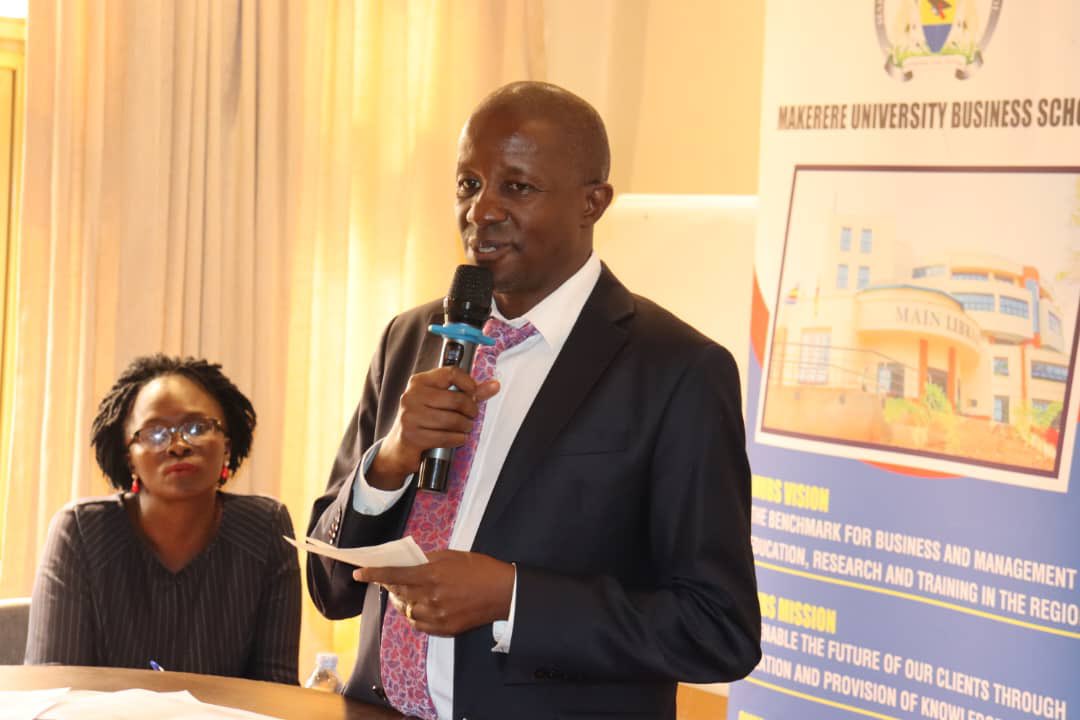Stakeholders at the “Green Energy for Women and Youth Resilience in East Africa” inception workshop have called for stronger investment in skills development to support the region’s transition to clean energy.
The workshop, held on Thursday at Grandville Manor Hotel in Bugolobi and funded by the International Development Research Centre (IDRC), focused on bridging the energy skills gap through the BES-TVET (Bridging Energy Skills through Technical and Vocational Education and Training) initiative.
In his remarks, MUBS Principal Prof Moses Muhwezi welcomed the project’s direction, noting its potential to uplift young people and women who face the highest barriers to employment.
He emphasised the importance of clean energy to national development and applauded IDRC’s support.
“The importance of energy to the countries, you know, to the industry, at an individual level, in our homes, to move everything, energy is so, so important. So I think IDRC financing this area, you are just right, you are spot on," he said.
The Principal highlighted the shift towards practical, skills-based training as Uganda rolls out competence-based curricula.
“So we have to make a balance between being pure academicians and being practical without diluting the purpose for which the university was created. So when we mix these methodologies, I think we are doing the right thing,” he said.
Prof Muhwezi further urged academics to “go out on the university walls and align ourselves to what the public requires,” adding that MUBS remains committed to research that produces real-world impact.
“As the Makerere University Business School, we are not going to simply be academic and stop there. I want to encourage my colleagues to also go out there and do what others do. You cannot teach what you do not have.”
Mr Paul Okwi, the IDRC Uganda coordinator, urged participants to align themselves with global transitions in clean energy and technology.
He said inclusive participation of women and youth is essential for reshaping the green-energy landscape.
“So more information on each of these is on our website. And how we access the funds is also clearly presented,” Mr Okwi said, outlining IDRC’s funding mechanisms.
He noted that IDRC has invested significantly in clean-energy research over recent years.
“For the inclusive economies division, we look at energy, the transition to clean energy, which has been our focus since 2020. We've had close to $15 million this past year, research on the transition to clean energy,” he said.
Mr Okwi encouraged researchers to take advantage of IDRC’s open calls, warning that Uganda risks missing out on critical funding.
“We got almost a thousand applicants… Uganda was not very well represented, and I don't think we got any of the funding,” he said, referring to a recent artificial intelligence grant call.
He also highlighted IDRC’s support for unsolicited proposals, especially those addressing emerging national challenges.
The workshop highlighted the need for collaboration between universities, vocational institutions, government and development partners to prepare a skilled workforce capable of powering East Africa’s clean-energy future.


